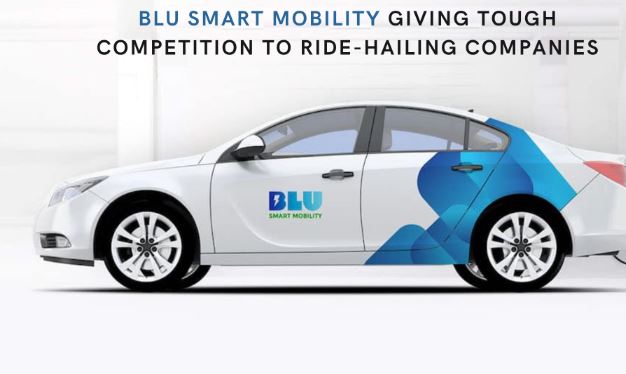BluSmart: Revolutionizing India’s Taxi Market with Electric Ride-Sharing
BluSmart, an Indian ride-sharing company backed by BP’s venture capital unit, is quickly gaining momentum in the race to electrify India’s taxi market, posing a strong challenge to established players like Uber and Ola. Founded in 2019, BluSmart has swiftly expanded its fleet of electric vehicles (EVs) and currently operates approximately 4,500 electric cars in New Delhi and Bengaluru. This puts them ahead of Uber and Ola in the rapidly growing EV segment of the market. While Uber recently launched its “Uber Green” EV business in India with plans to grow to 10,000 electric two-wheelers by 2024, Ola has also expressed its intention to add 10,000 EVs to its ride-sharing fleet, although the implementation has not yet begun.
In order to keep up with the EV ambitions of Uber and Ola, BluSmart has announced plans to add between 600 and 800 new cars to its fleet every month. Punit Goyal, co-founder of BluSmart, emphasizes the urgent need for EV ride-sharing services, particularly in cities like New Delhi that suffer from severe air pollution and compromised air quality. Goyal sees the transition to EVs as a significant opportunity for both the ride-hailing industry and public health.
BluSmart aims to differentiate itself from its competitors by providing superior service, focusing on newer vehicles, and implementing a pre-booking model to ensure prompt pick-ups. The company’s fleet consists of EVs manufactured by leading Indian conglomerate Tata, MG Motor India (a subsidiary of Chinese automaker SAIC Motor), and BYD, a prominent Chinese competitor to Tesla that has aggressively expanded internationally. In contrast, Uber and Ola have encountered challenges in maintaining consistent service in India, leading to frequent cancellations and unreliable experiences for customers. Additionally, the low wages offered to drivers have prompted many to abandon these platforms. Uber sold its business in Southeast Asia in 2018.
BluSmart’s business model deviates from the conventional ride-sharing approach, as the company purchases its own vehicles and contracts drivers to operate them. The distinctive blue-colored BluSmart cars have become a common sight on the streets of New Delhi over the past year. However, this business model comes with significant expenses. BluSmart has successfully secured over $120 million in equity and debt funding from prominent investors, including BP Ventures and Bollywood star Deepika Padukone. Despite currently operating at a loss, BluSmart generates annual revenues of approximately $40 million from its EV operations. Goyal’s aim is for the company to achieve “ebitda positive” status (earnings before interest, taxes, depreciation, and amortization) by the end of 2023. Currently, BluSmart has financing for 15,000 cars and is engaged in discussions with potential investors, including Australia’s Macquarie, to secure additional funding that would enable them to expand their fleet to 25,000 cars. However, Macquarie has declined to comment on the matter.
While BluSmart sets ambitious targets for growth, some analysts remain skeptical about its ability to achieve them. Basudeb Banerjee, an analyst at ICICI Securities, highlights the challenges faced by ride-sharing companies in maintaining service quality as they scale up their operations. He emphasizes that delivering consistent quality at scale has proven difficult for both Uber and Ola. Banerjee acknowledges that BluSmart benefits from being a new company with relatively newer EVs and higher-quality vehicles. However, he cautions that further expansion may require compromises in terms of vehicle and driver quality, potentially affecting customer satisfaction.

